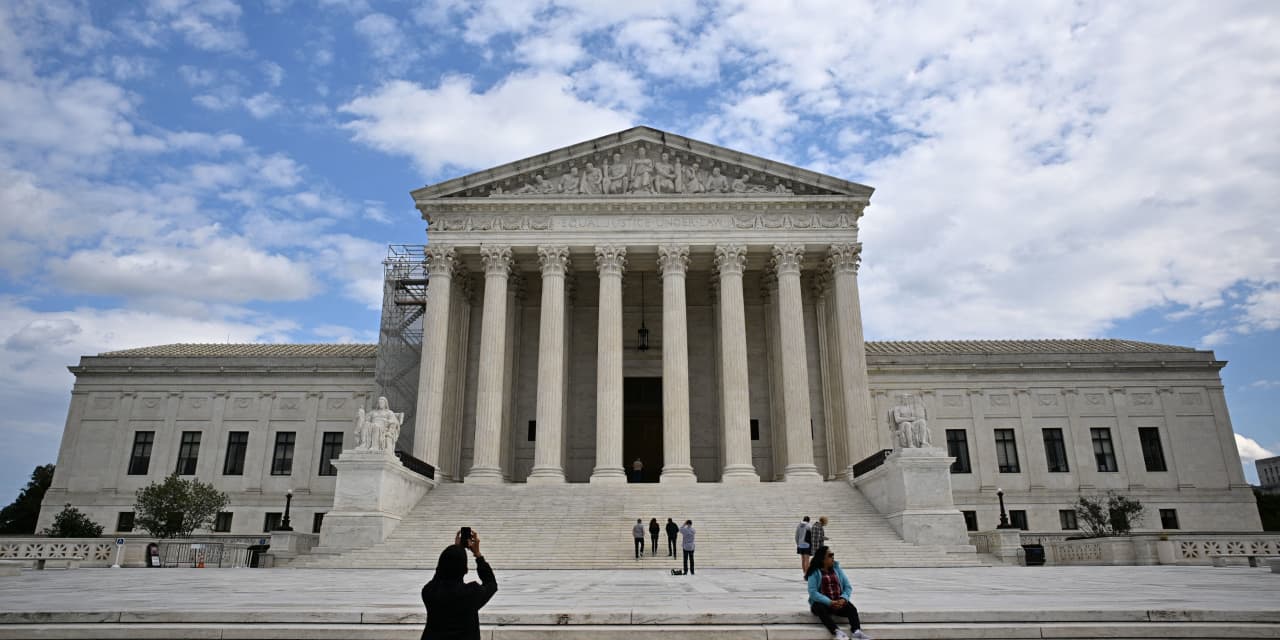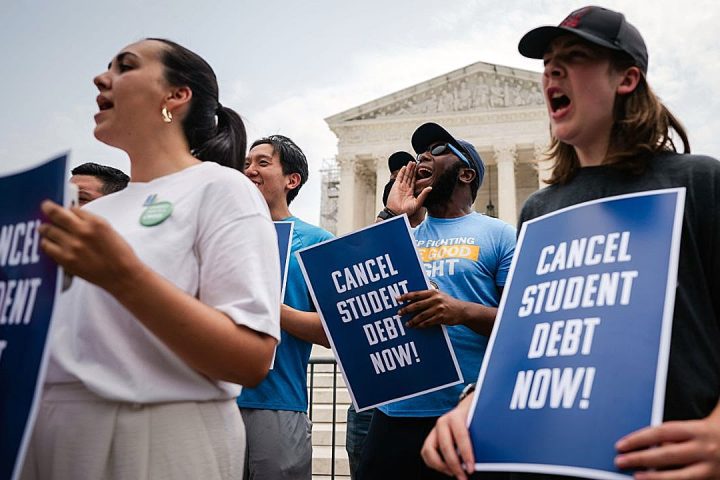In a Supreme Court case revolving around one couple’s disputed tax bill, justices Tuesday wanted to explore the case’s potential broader implications, while opposing lawyers wanted them just to stick to the case at hand.
The court’s big-picture worries included whether a broad ruling could topple an array of longstanding tax rules. Another worry, from some conservative-leaning judges, was whether lawmakers have the power to tax stock holdings that gain value as they sit in mutual funds and retirement accounts.
The case, Moore v. U.S., is being widely watched because it could have major ripple effects on when the government can collect income taxes from businesses and investors.
It’s also high-stakes litigation because of the roads it could pave — or block — in creating wealth taxes at a time when President Joe Biden and other Democrats are proposing taxing the country’s richest households.
In the underlying case, a Washington couple said one part of the 2017 Trump tax cuts wrongly taxed them on a stake in an India-based business that they never cashed into a real-life profit.
Because the Moores didn’t personally reap a profit on their stake, but then had to pay the one-time Mandatory Repatriation Tax that was a provision of the Tax Cuts and Jobs Act, the tax allegedly violated the type of federal income tax allowed by the Constitution, their lawyers argued.
Without that so-called “realization,” the Moores’ lawyers said, there’s nothing stopping lawmakers from taxing investments that grow without the owner taking a profit.
The court needed to speak clearly against taxing unrealized income in order to preempt court clashes on wealth taxes in the future, they said in court papers. Wealth tax proposals didn’t come up during oral arguments, but they hovered in the background.
“Income is not an inkblot,” the Moore’s lawyer, Andrew Grossman, told judges Tuesday. “A gain is not income unless and until it has been realized by the taxpayer.” The court could side with the Moores and avoid disturbing other tax provisions, he said.
But U.S. Solicitor General Elizabeth Prelogar told judges that there were large swaths of the tax code where income taxes apply without any sort of payout or distribution.
The Moores were allegedly asking for hard and fast rules that “would cause a sea change in the operations of the tax code and cost several trillions on lost tax revenue,” she said.
The court could easily reject the Moores’ arguments and avoid weighty questions about the meaning of income and an ironclad definition of “realization,” she said.
“You’re asking us to just announce what realization is out of context and for the last 100 years, we’ve been studiously avoiding doing that because we recognize that it’s dangerous to do that,” Justice Sonia Sotomayor told Grossman.
“To state a word like ‘realization,’ we then have to come up with a working definition that applied to every piece or property an every way in which people gain wealth. It doesn’t seem logical to me,” said the judge on the court’s liberal wing.
Grossman said the concept of “income” meant the owner actually enjoyed the benefits of the asset, and that was understood when lawmakers drafted the 16th amendment that was ratified in 1913.
The amendment let Congress collect income taxes “ from whatever source derived, without apportionment among the several States, and without regard to any census or enumeration.”
Justice Samuel Alito said he was “quite concerned” with the prospect of widespread questions about the ways other parts of the tax code worked if the court sided with the Moores. That’s “a fair argument,” the conservative-leaning judge told Prelogar.
But it was also fair to see how far the government thought it could go with its own taxing powers, Alito continued.
Could someone be taxed on their stock holdings in a mutual fund, even if the person just let the holdings gain value, Alito wondered.
“I think if Congress actually enacted a tax like that, and it never has, that we would likely defend it as an income tax but you don’t have to agree that tax would be valid in order to uphold the Mandatory Repatriation Tax,” she said.
The court needed to weigh the merits of each tax in front of them instead of speculating on the future, she said.
Justice Neil Gorsuch also pressed Prelogar on how far the government argument could go — and if lawmaker could seize the opportunity.
“If the only bar to Congress from enacting a tax on millions’ of Americans retirement accounts and mutual funds is adminstratability, they are pretty clever over there, aren’t they?” he said.
Justice Elena Kagan circled back to Prelogar’s talk of defending a hypothetical taxes on mutual fund. She noted Prelogar was speaking as the Solicitor General. “When you say that, that’s your job, right?” Kagan said.
“Yes, we generally defend the Constutionality of statutes,” Prelogar said to laughs.
“It’s important for the court to not rely on concerns about those types of far-fetched hypotheticals to announce bright-line rules,” Prelogar later added.
‘Super Bowl Supreme Court case’
After two hours of arguments, observers differed on where the judges were heading next.
“Even across the court’s usual ideological divides, we heard clear, well-grounded skepticism from justices about the petitioners’ radical legal theory, which would shake the pillars of our income tax system built on a bipartisan basis over decades,” said Chye-Ching Huang, executive director of the NYU Tax Law Center.
The case “raises a seemingly simple question, but today many members of the Court worried that every possible answer could lead to complicated and unanticipated consequences,” said Thomas Berry, research fellow at the Cato Institute, a libertarian-leaning think tank.
“The Court seems likely to draw a line past which Congress may not go when imposing federal taxes, which means courts will still have a role to play in keeping Congress in check. The uncertain question is where exactly the Court will draw that line,” Berry said.
“Moore v. U.S. is like a stalking horse,” said Gary Scanlon, principal, International Tax – Washington National Tax at KPMG, one of the big four accounting firms.
The decision “could potentially open the door for several other tax provisions to be called into question, potentially reshaping the U.S. tax code, and resulting in sweeping impact to the government, corporations and individual taxpayers alike,” he said. “It’s a Super Bowl Supreme Court case — everyone is watching.”
Read the full article here







